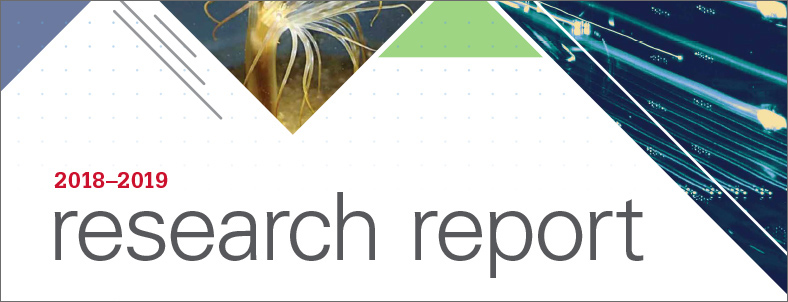Spire Global is one of the world's largest spaceto-cloud analytics companies, providing global weather-forecasting services for the maritime and aviation industries as their satellites travel around Earth. Spire leverages the power of data analytics through high performance computing centers, such as the Ohio Supercomputer Center (OSC), and the world’s largest fleet of multipurpose satellites to address customer needs, protect lives and save hundreds of millions of dollars.
“There is not a single business or person on the planet which isn't affected by weather each day,” Spire reminds people visiting their website.
Spire’s constellation of nearly 100 footballsized satellites circle the globe, gathering large amounts of atmospheric, aviation and maritime data. Fusing this data with additional satellite and terrestrial data, it then procures millions of compute cycles and space on OSC’s Owens Cluster and high performance storage systems. This feeds its proprietary system of weather models to create valuable weather predictions tailored to the operational needs of its customers.
“Because the data’s always changing and the weather is always changing, the models always need tweaking or to be improved,” said Timothy Brown, a software engineer for Spire. “We gather thousands of observations per day of atmospheric conditions—pressure, temperature and humidity—to just nudge the model a little bit. By having the actual observation, the forecast becomes even more valuable and accurate.”
Spire also tracks location information of ships and planes, promoting fuel conservation, route planning efficiency and near real-time responses to global events like the recent incidents around the tanker Front Altair or Malaysia Airlines Flight 370 in 2014.
“We observe ships because of those disasters,” said Brown. “The maritime industry later mandated installation of position broadcasters on ships after the Exxon Valdez incident. Aircraft have these tracking devices as well, and satellites can track both aircraft and ships in real-time.”
With exceptional compute power provided by centers like OSC, further applications around weather are possible, especially benefitting some of the more underserved communities globally.
“By using our satellites to read signals from GPS satellites—signals that are not passing through the atmosphere but reflecting off the earth—we can deduce measurements like soil moisture at a specific location,” said Brown. “And, therefore, we can feed that into climatological models to determine if this growing season is going to be good or bad. So, for example, you could help predict a famine in Africa.”
_________
PROJECT LEAD // Timothy Brown, Spire Global Inc.
RESEARCH TITLE // Weather forecasting and radio occulation data
WEBSITE // weather.spire.com

